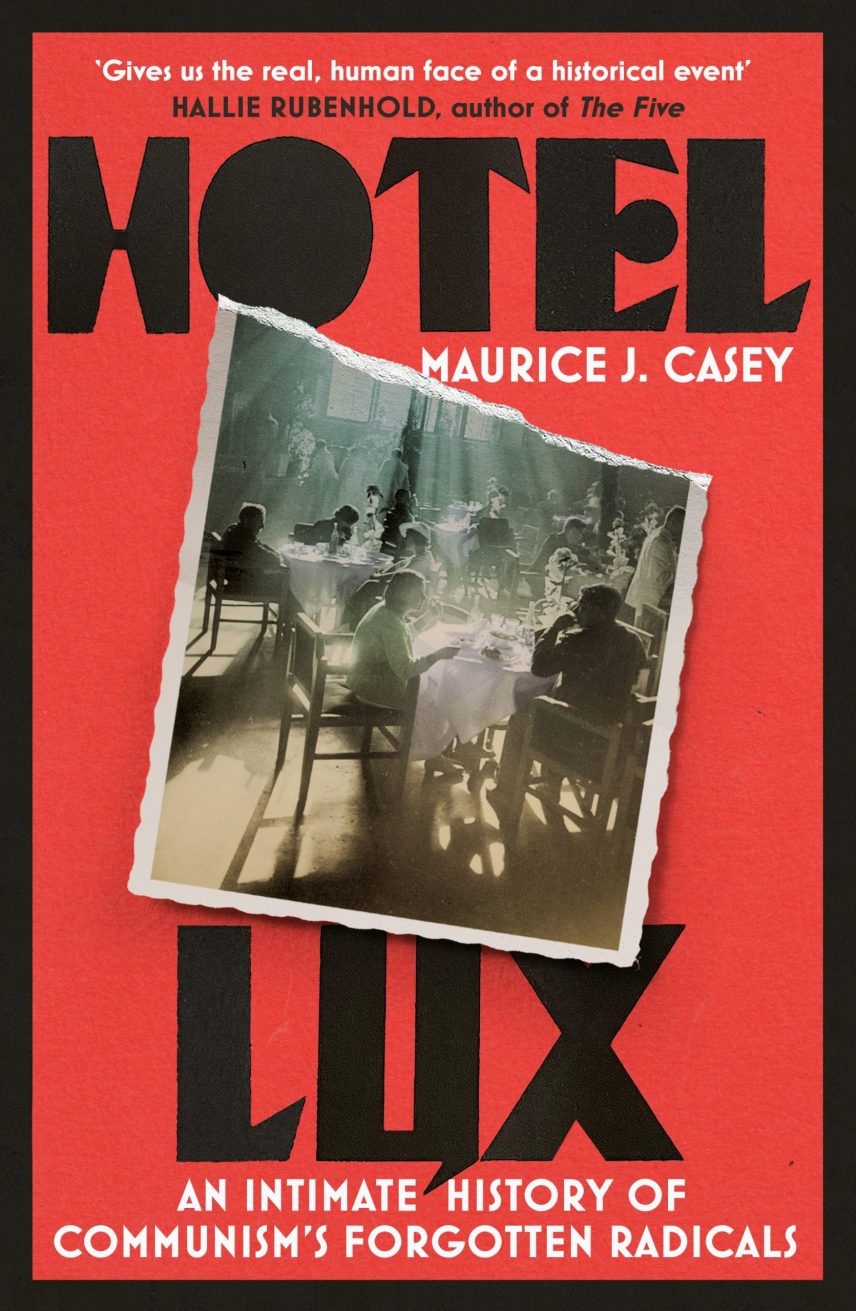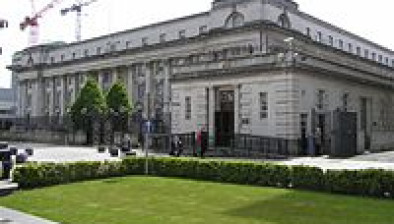Review: Hotel Lux, a tour de force of historical detective work

Graham Ogilvy reviews an upcoming book which brings to light Irish links to the headquarters of the world revolution.
This ground-breaking new book by Irish historian Maurice Casey tells the story of Wexford woman May O’Callaghan and of the friendships and love affairs of her comrades who lived and worked as young idealists in the Hotel Lux, the Moscow epicentre of world revolution in the 1920s — before a paranoid Stalin decided to wipe out his erstwhile revolutionary colleagues in the bloody purges of the 1930s.
The Hotel Lux, which housed Communists employed by the Communist International (Comintern) was never luxurious. In fact, it was quite the reverse — but hardship was of little concern to the passionate radicals who saw in Lenin’s revolution the chance to change the world, eradicate poverty and end the sort of mad industrialised slaughter of the First World War which radicalised young intellectuals in the twenties.
Gradually this intellectual hothouse of idealistic optimism was transformed into a grim ante-chamber of the dreaded Lubyanka prison to which Stalin’s secret police, the NKVD, dragged foreign communists, accused of sympathy for his rival Trotsky or of fabricated espionage charges, to be tortured and executed. Comrades sat with their bags packed waiting for the early morning knock on the door from the secret police. The lucky ones disappeared into the Gulag; the less fortunate ended their days in a Lubyanka cellar or at a vast shooting ground outside Moscow.
In the midst of all this, May O’Callaghan carried on with her important role as head of the English, French and Spanish translation department of the Comintern.
Casey discovers O’Callaghan’s identity after spotting a reference to ‘OC’ in the papers of the American writer Joseph Freeman. The historian turns detective as his quest takes him from the Cotswolds to California, and from the fleetingly opened Kremlin archives to the public library of New York.
In the process of his meticulous research, Casey uncovers a wealth of detail and material relating to O’Callaghan and her friends. In this compelling work he recreates the heady early days of Irish and British communism and produces the first serious English-language account of the Hotel Lux, personalising and humanising names previously cast into the condescension of obscurity.
Among O’Callaghan’s friends are British sisters Nellie and Rose Cohen. May first met Nellie when they both worked for Sylvia Pankhurst’s Workers’ Dreadnought in London. Their friendship endured — even after May introduced Nellie to her friend, the Irish writer Liam O’Flaherty, by whom Nellie had an illegitimate child. Nellie chose to have the child in the young Soviet Union where there was less stigma than in England.
O’Flaherty, who fancied himself as Ireland’s Lenin, emerges as what would have been described at the time as ‘a cad and a bounder’ — a philandering dilettante.
As Casey observes: “Liam O’Flaherty entered each new chapter of his life illuminated by the flames of bridges burning behind him.”
Nellie was luckier than her sister Rose. She returned to England with her child. Rose married a dashing Russian revolutionary, David Petrovsky, who was an important Comintern operator. When Stalin had no further need of professional revolutionaries who were a threat to him, Petrovsky was arrested and shot. In 1937 Rose suffered the same fate with the couple’s young son taken to a Soviet orphanage.
Both Rose and David would be posthumously rehabilitated after Khrushchev’s 1956 ‘Secret Speech’ denouncing the crimes of Stalin. Incredibly, Nellie remained a Communist Party member to her dying day.
It is just one of the many stories woven into this excellent account of a lost world of revolutionary idealism.
Hotel Lux: An Intimate History of Communism’s Forgotten Radicals by Maurice J. Casey. Published by Footnote Press, 491pp.








